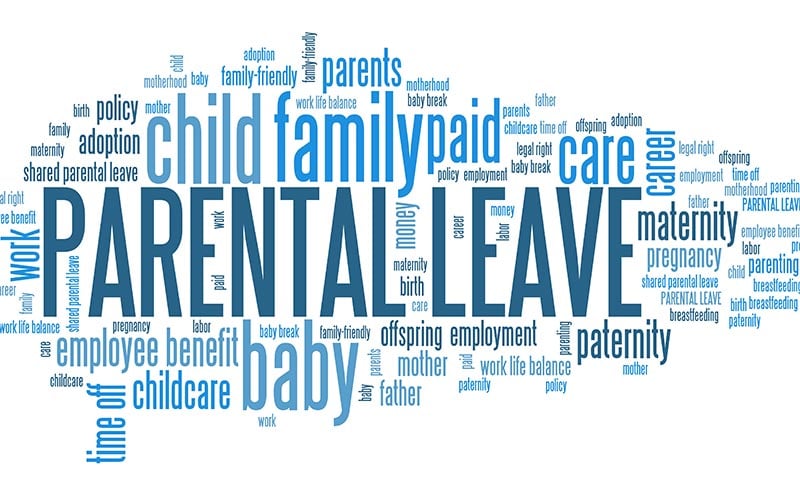
FMLA v Paid Leave
Me: This is a pretty good contract for your part of the country. Is your new employer providing paid parental leave for the birth of your children?
Resident: Oh yeah, I’m totally covered – I have FMLA!
Me: DO NOT BE FOOLED. FMLA is NOT paid leave.
Implemented during the Clinton administration in 1993, the Family Medical Leave Act (FMLA) is a federal law that guarantees unpaid leave for qualifying employees. The law mandates that employers with more than 50 workers allow an employee to leave for 12 weeks without fear of being fired and/or replaced, provided he/she has held that job for 12 months and logged at least 1,250 hours. Employees may be absent for 12 work weeks over a 12-month period for any of the following reasons:
The birth of a son or daughter or placement of a son or daughter with the employee for adoption or foster care;
To care for a spouse, son, daughter, or parent who has a serious health condition
For a serious health condition that makes the employee unable to perform the essential functions of his or her job;
For any qualifying exigency arising out of the fact that a spouse, son, daughter, or parent is a military member on covered active duty or called to covered active duty status;
To care for a covered servicemember with a serious injury or illness, when the employee is the spouse, son, daughter, parent, or next of kin of the servicemember (eligible for 26 work weeks leave unpaid).
Generally, employees need to make such requests 30 days in advance (assuming the need – such as pregnancy – is foreseeable), but some employers may require even longer notices. Any employee who returns from FMLA leave must be restored to his/her original job (or an equivalent position) with equivalent pay, benefits, and other terms and conditions of employment.
Residents often tell me that when they’ve asked a prospective employer about “paid parental leave,” they’ve been told the job offers FMLA protections. I am uncertain if interviewers realize that many take this as confirmation of paid leave. Interpreted correctly, however, the statement means, “Yes, you may leave – but don’t expect to get paid while you’re gone.”
Upon recently accepting a job, a physician I know was handed a two-page contract and told to reference the faculty manual for further details. The manual, which stated that faculty members were entitled to six weeks of paid maternity leave, listed no restrictions. However, when she arrived at her new job four months pregnant, she was told that she was ineligible for FMLA. Her employer explained that she did not qualify because she would not have worked there for one year or 1,250 hours by the time her child was born.
In this case, it was up to the employee to school the employer on the law. She explained that her contract and FMLA were mutually exclusive – that is, the terms of her contract alone qualified her for paid leave.
Paid leave is most commonly found in academic and hospital contracts. It can be more difficult to find this benefit in groups whose salaries are based on relative value unit (RVU) productivity or physician staffing groups/contract management groups. Some productivity-based groups argue that paid leave unfairly burdens working physicians, who essentially are forced to finance another employee’s leave with the RVUs they earn during his/her absence. Independent contractors are unlikely to find a contract with paid parental leave.
There are alternatives to traditional paid parental leave. Some employers, most commonly staffing groups, and physician groups offer low-interest loans to help physicians finance family leave. Commonly, these loan payments are withdrawn directly from the employee’s paycheck when he/she returns to work. Other physicians are able to “bank” paid sick leave and use their sick leave to fund their parental leave.
Paid leave can be negotiated. A successful negotiation often depends upon the demand for the position. A group with ten interested people for every job is much less willing to negotiate than a group that is having a difficult time filling its positions. Physicians who are paid hourly prior to becoming a partner may be in a better position to negotiate paid leave. Presumably, the RVUs a new employee bills will outpace his/her hourly wage. In such cases, the group can use those profits to subsidize the employee’s leave without affecting fellow physicians’ RVU compensation.
FMLA does not pertain to employers with less than 50 employees. Many small groups fall under this exemption. Therefore, these groups are not required to give any leave. In fact, some groups are small enough that they may not have enough physicians to cover the missed shifts.
There are many different “practices” of emergency medicine from being an independent contractor, an employee of a staffing group, or a partner in a democratic group, just to mention a few. Our varied types of practice make it difficult to have a one size fits all answer to paid parental leave, which is why it is so important for physicians to discuss the parameters of parental leave with their new groups/employers and to make sure it is addressed in their contracts.
Resident: Wow. I thought I was getting paid parental leave. Do I really have any power to ask for paid leave?
Me: YES! You bring a valuable skill set to the table. You have many job opportunities available to you. Although, not every negotiation will be successful, you should not fear negotiation. It is part of the contracting process. If you do not ask for paid parental leave it will not be given to you. The more physicians negotiate for paid parental leave the more common place it will become in our contracts.
Sarah Hoper, JD, MD
Chair, AAWEP



